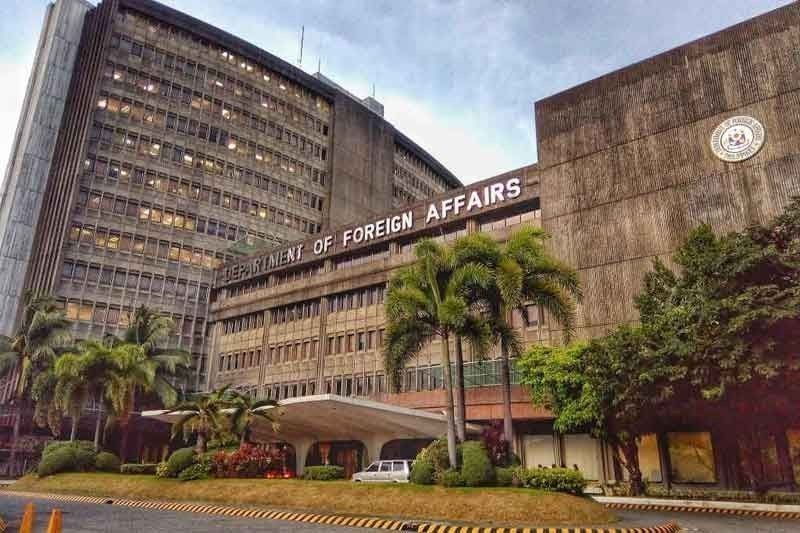Filipino among new nCoV cases in UAE

MANILA, Philippines — The Department of Foreign Affairs (DFA) confirmed yesterday that a Filipino in the United Arab Emirates (UAE) has tested positive for the 2019-Novel Coronavirus (nCoV).
The DFA, in a statement yesterday afternoon, said it will fully coordinate with UAE health authorities on the case through the Philippine embassy in Abu Dhabi.
Citing a report from the UAE Ministry of Health and Prevention (MoHAP), the DFA said the Filipino is under observation and is being given the necessary medical care in accordance with the highest standards in the Middle Eastern nation.
“With this in mind, the embassy reminds all Filipinos in the UAE to always follow the hygiene protocols of the MoHAP and the World Health Organization (WHO),” said the agency.
“Also, the public is advised to only get their information from UAE health authorities and not to post or share on social media and digital messaging any unverified information,” it added.
Earlier, state-run Emirates News Agency said a Filipino was among the two new nCoV cases in UAE, the other being a Chinese national.
The two new confirmed cases brought the number of nCoV cases in the Middle Eastern nation to seven.
The report said the patients were identified through the continuous periodic screening being conducted in accordance with the standards of the WHO for people with symptoms of nCoV.
Citing a statement from MoHAP, the news agency said the new patients “are under observation and necessary medical care according to the highest health standards applicable in the country, stressing the effectiveness of the online reporting system.”
The confirmed case in the UAE is the second Filipino to have contracted nCoV, after a Filipino crewmember of cruise ship Diamond Princess currently docked in Japan tested positive.
On Friday, Labor Secretary Silvestre Bello III apologized after wrongly claiming that Filipina migrant worker Amalia Collado Daproza died in Dubai, UAE due to an unspecified strain of coronavirus.
The Government of Dubai Media Office said the cause of death was pneumonia and that Daproza tested negative for nCoV.
Mortality rates
With the end of the nCoV outbreak not yet in sight, the number of fatalities will likely surpass the number of deaths from the Severe Acute Respiratory Syndrome-Coronavirus (SARS).
Based on the Feb. 8 updates from WHO, the number of confirmed cases of nCoV had reached 34,546, including 6,101 severe cases, and 722 deaths in 25 countries.
On the other hand, the website of the Atlanta-based Center for Disease Control and Prevention said there were 8,096 people who got infected with SARS, which was first reported in Guangdong, China in 2002.
After eight months, WHO had declared that SARS had already been contained but 774 were left dead in its tracks in 29 countries.
Asked about this, infectious disease expert Edsel Maurice Salvana, director of the Institute of Molecular Biology and Biotechnology at the University of the Philippines-Manila’s National Institutes of Health, said “there are many factors that determine (the) infectivity” of a virus.
But in general, he noted that “the less deadly a disease, the more cases there are because more people survive to transmit.”
“Ebola, for instance, has high mortality, so most (infected) people died before they can spread. The 2009 H1N1 pandemic killed more than 100,000 and yet the case fatality rate was only 0.03 percent,” Salvana added.
The WHO has placed the mortality rate of nCoV now at two percent. With SARS it was 14 percent, while Middle East Respiratory Syndrome – or MERS – was 36 percent.
He continued that more cases of nCoV are being detected now because “surveillance protocols are in place” as a result of the creation of the International Heath Regulation by the WHO after the SARS outbreak.
“When they are activated, the hospitals and health institutions follow,” Salvana explained.
The expert, however, underscored that “social media, unfortunately, has contributed to the panic, especially with sharing of unverified or fake news.”
Salvana added that social media “interferes with the response and makes more work for the responders.” – With Sheila Crisostomo
- Latest
- Trending


























